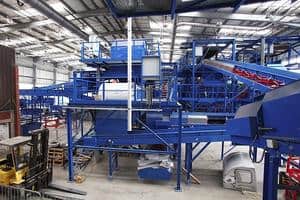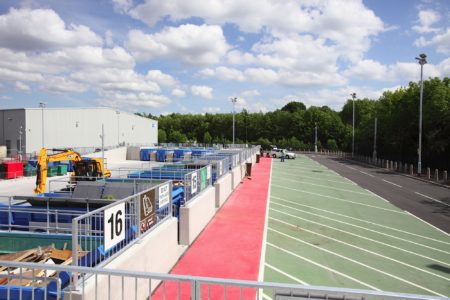The rise is said to have been brought on in part by “tightening end markets” leading a drive for higher quality material and a spike in Covid-related waste such as facemasks being put in with recycled material.

Greater Manchester Combined Authority (GMCA) data shows the contamination rate between April and June 2020 at the Longley Lane MRF was 21.2%. This has increased from 19% in 2019/20.
However, the GMCA says the average contamination levels at the MRF improved between July and September, standing at around 17%. This gives an April to September average of around 19%.
A spokesperson for the GMCA told letsrecycle.com: “The impact of the Covid-19 pandemic has affected the number of recycling loads rejected at material recovery facilities in Greater Manchester.
“During the period covering April, May and June this year, some local authority collections were disrupted, while household waste recycling centres were closed throughout April and re-opened in a phased approach from 2 May, with full service resuming on 30 June.
“In addition to this, we experienced significant contamination as a result of Covid-related waste such as face coverings and tissues, which many residents may wrongly believe can be recycled in their paper and card bin.”
Covid-19-related waste
The GMCA said contamination rates had partly been affected through additional contamination from Covid-related waste. It also attributed the increase to more people working at home and producing more waste.
“We experienced significant contamination as a result of Covid-related waste such as face coverings and tissues”
Nappies had always presented a contamination issue, the GMCA added. The combined authority said it was developing a targeted communications campaign aimed at parents and carers of babies in nappies to advise them on the correct way to dispose of nappies, which is in the general waste bin.
To prevent contamination more broadly, local authorities are rejecting bins that are clearly contaminated and adjusting the way they collect paper and cards bins so that wagons tip off before full, the GMCA says. This helps avoid compacting the material too much, which makes it difficult to pick out large items of contamination.
Bin stickers and leaflets are used to advise residents of which items can be placed in the recycling bins. Additional picking is also being carried out at the waste transfer station before the paper and card is delivered to the paper mill.
Tightening markets
Rates had also been affected in part through tightening markets, the GMCA said. The tightening markets have led to a drive for higher quality material.
“There is an ongoing issue regarding the tightening of recycling markets that has caused increasingly stringent quality controls at reprocessor outlets, brought about by dramatically reduced material values and demand in the global marketplace,” the GMCA spokesperson said. “This is an international issue and not one confined to Greater Manchester.”
HWRCs
The GMCA says household waste recycling centre (HWRC) recycling and diversion rates remained stable between April and September, although tonnage throughputs were much lower between April and June. Recycling rates were between 47% and 48% and diversion from landfill was around 97%.

The tonnage throughput from July onwards showed a return to comparable levels to the previous financial year, the GMCA said, but is running lower overall. The combined authority attributed the fall to a reaction to Covid-19 control measures and the impact this was having on resident behaviour in general.
Representing an estimated population of 2,813,000, the GMCA had a recycling rate of 47.9% in the 2018/19 financial year.











Subscribe for free